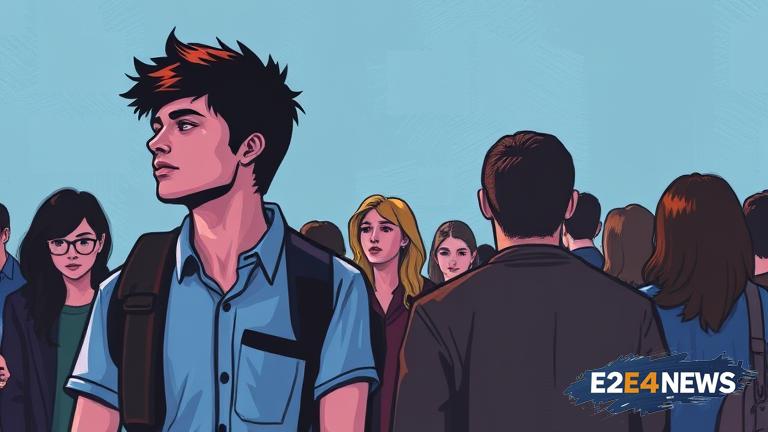A new poll conducted by the Associated Press and the National Opinion Research Center (AP-NORC) has shed light on a disturbing trend among young adults in the United States. The survey found that a significant proportion of young adults are disengaged from politics, with many expressing a lack of interest in following political news or participating in the electoral process. According to the poll, only about one-third of adults under the age of 30 consider voting to be a crucial aspect of citizenship. This is in stark contrast to older generations, where a majority of respondents believe that voting is essential. The poll’s findings have sparked concerns about the future of civic engagement and the potential consequences of young adults’ disengagement from politics. The survey also revealed that young adults are less likely to follow political news, with many citing a lack of trust in the media or a sense of disillusionment with the political process. Furthermore, the poll found that young adults are more likely to prioritize other issues, such as climate change, social justice, and economic inequality, over traditional political concerns. This shift in priorities has led some to speculate that young adults may be seeking alternative forms of engagement, such as activism or community organizing, rather than participating in traditional electoral politics. Despite these findings, many experts believe that young adults still have the potential to shape the political landscape, particularly if they are mobilized around issues that resonate with them. However, the poll’s results also suggest that there are significant barriers to engagement, including a lack of access to reliable information, a sense of disillusionment with the political process, and a perceived lack of efficacy in bringing about change. To address these challenges, some advocates are calling for increased investment in civic education, voter registration drives, and other initiatives aimed at promoting political engagement among young adults. Others are emphasizing the need for politicians and policymakers to prioritize issues that matter to young people, such as student loan debt, affordable healthcare, and climate action. The AP-NORC poll’s findings have significant implications for the future of American democracy, highlighting the need for renewed efforts to engage and mobilize young adults in the political process. As the country looks to the future, it is clear that the participation and engagement of young adults will be crucial in shaping the direction of the nation. The poll’s results serve as a wake-up call for policymakers, educators, and community leaders to work together to promote civic engagement and ensure that the voices of young adults are heard. By prioritizing issues that matter to young people and providing them with the tools and resources they need to participate in the political process, it is possible to reverse the trend of disengagement and foster a more inclusive and representative democracy. The AP-NORC poll’s findings also underscore the importance of addressing the systemic barriers that prevent young adults from participating in politics, including voter suppression, lack of access to education and job opportunities, and social and economic inequality. Ultimately, the future of American democracy depends on the ability to engage and mobilize young adults, and it is imperative that policymakers and community leaders take immediate action to address the challenges and concerns that are driving their disengagement from politics. The poll’s results are a reminder that the health of democracy depends on the active participation of all citizens, regardless of age or background. As the country moves forward, it is essential to prioritize the needs and concerns of young adults and to work towards creating a more just and equitable society that reflects the values and aspirations of all Americans. The AP-NORC poll’s findings serve as a call to action, highlighting the need for a renewed commitment to civic engagement, education, and community organizing. By working together to address the challenges facing young adults, it is possible to build a brighter future for American democracy and to ensure that the voices of all citizens are heard.





